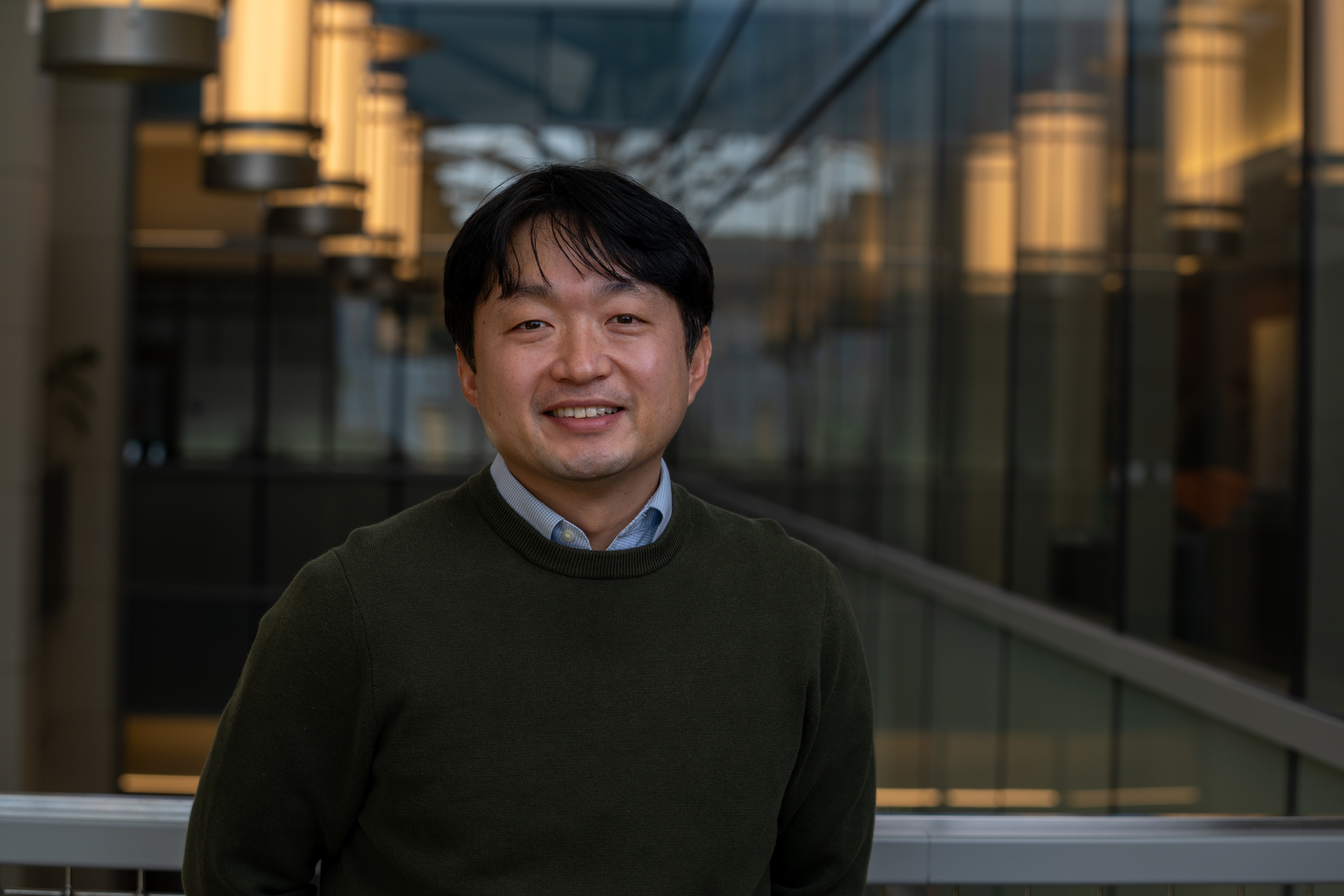Chi Hwan Lee Honored with Faculty Award of Excellence for Research
Since joining Purdue, Professor Lee has established himself as a global leader in wearable healthcare technologies and stretchable bioelectronics. His pioneering work in wafer-recyclable transfer printing has enabled the scalable fabrication of thin-film electronics without the use of harsh chemicals. These techniques support the development of next-generation devices—including curved displays, solar panels, wearable sensors, and telemedicine platforms—with widespread commercial adoption through companies such as Omniply Technologies.
In the clinical realm, Lee’s soft, stretchable skin sensors are helping to revolutionize how we monitor chronic conditions such as vocal cord dysfunction, asthma, and diabetes. These skin-mounted devices, which are being validated through NIH- and NSF-funded clinical trials, offer real-time biosignal tracking that is both noninvasive and highly accurate—ushering in new possibilities for tele-rehabilitation and personalized healthcare.
One of Lee’s most recognized innovations is a smart contact lens platform designed for continuous health monitoring via the eye. These lenses combine biosensing functionality with essential features such as oxygen permeability and overnight wearability. Featuring a stretchable ocular tonometer to detect intraocular pressure changes, the lenses are now being commercialized through BVS Sight and supported by NIH funding. Future versions aim to support real-time drug delivery and multiplexed biomarker detection.
Lee has also broken ground in intracellular sensing and drug delivery. His flexible semiconducting nanoneedle platform combines transparent silicon nanoneedles with metal nanowire networks to achieve high-precision intracellular recording and live cell imaging. Already proven in monitoring cardiomyocyte activity and engineered heart tissues, the platform is entering preclinical trials for applications in neuroscience, cardiology, and organoid-based drug testing.
His recent research breakthroughs also include:
- A new myoelectric control system that offers more intuitive and precise control of prosthetic limbs, enhancing user functionality and experience.
- A patented hydrogel-based soft contact lens, co-invented with chemical engineering professor Bryan Boudouris, that transforms everyday lenses into real-time health monitors capable of tracking critical biomarkers noninvasively.
In recognition of his sustained impact, Professor Lee was recently inducted into the American Institute for Medical and Biological Engineering (AIMBE) College of Fellows, one of the highest honors in the field of medical and biological engineering.

